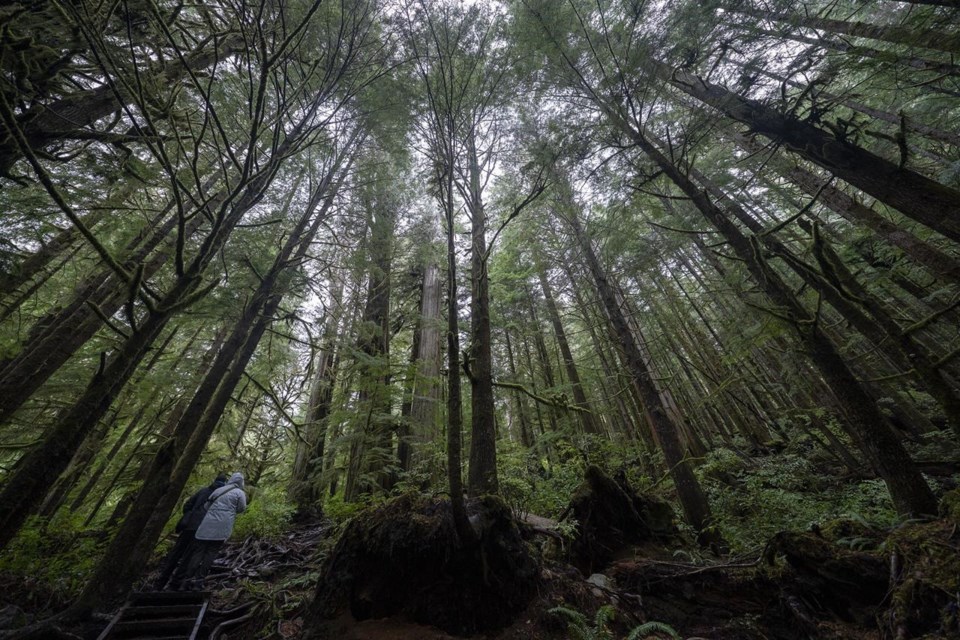VICTORIA â The British Columbia government says it is introducing new approaches to manage timber resources that will protect more old-growth trees from logging, while supporting innovations to better care for the forests.
The latest old-growth logging deferral data shows logging of the ancient trees is now at the lowest level on government record, Premier David Eby said Wednesday.
The logging deferral of old-growth forests is now at 2.1 million hectares, up from last spring's report of 1.7 million hectares, he said.
"That's an area equal to more than 4,000 Stanley Parks," said Eby. "These are areas that were left vulnerable by the previous government and we're seeing real results on the ground."
Eby said during a news conference that his government is working with First Nations across sa¹úŒÊŽ«Ãœ to pause logging on millions of hectares of old growth.Â
Forest industry and environmental groups called the government's policy measures on forest management "positive" and "a new era."
The Council of Forest Industries said the policy measures will help build a sustainable industry that produces renewable products.
âTodayâs announcement includes positive steps toward putting the necessary investments, frameworks and relationships in place to advance how old-growth forests are conserved and managed in the province," said COFI president Linda Coady in a statement.Â
âIn addition to important capacity funding for Indigenous Nations and the First Nations Forestry Council, actions being taken to accelerate the old-growth review process will also support land use planning at the local level," she said.
John Bergenske, conservation director of Wildsight, said the forest policy changes signal a shift in direction toward protecting forest biodiversity.
"After decades of forest management that has prioritized timber supply over ecosystems and the health of British Columbiaâs forests, Premier David Eby announced a transformational shift," he said in a statement.
Eby said the government is introducing a $25-million, expanded eight-point forest planning table that aims to improve old-growth management by incorporating local knowledge and community priorities.
"I want to make sure these majestic trees are there for my kids and their kids, and the environment," said Eby.
Last May, the Ministry of Forests announced an Old-Growth Strategic Review and reported logging deferrals on about 1.7 million hectares, including more than one million hectares of trees most at risk of irreversible loss.
"We need to change our entire way of thinking," said Garry Merkel, one of the authors of the Old Growth Strategic Review. "I am personally optimistic that this time we're actually going to make this thing stick."Â
In expanding that review, the government announced it would be implementing alternatives to clearcut logging, such as selective harvesting techniques, and it will be repealing outdated wording in law that prioritizes timber supply over issues like water quality and wildlife habitat.Â
Green Party Leader Sonia Furstenau said the government has introduced substantial changes to sa¹úŒÊŽ«Ãœ forest policy and removing the outdated wording "unduly reducing the supply of timber" from law is a game changer because it allows the consideration of other land values beyond timber.
Eby said the government is also doubling the new BC Manufacturing Jobs fund to $180 million to help mills provincewide process smaller trees and produce high-value wood products.
This report by The Canadian Press was first published Feb. 15, 2023.
Dirk Meissner, The Canadian Press



